Description
IFP3701 Assignment 4 Memo | Due 16 July 2025. All questions fully answered. QUESTION 1 (25 marks) 1.1 List and briefly describe four (4) stages of reading development in the Foundation Phase. (4) 1.2 What is phonemic awareness? Give 2 reasons why phonemic awareness is important in early reading instruction. (3) 1.3 Explain the difference between shared reading and guided reading. (5) 1.4 Mention two ways to assess a learner’s reading fluency. (4) 1.5 Why is it important to read aloud to learners daily in the Foundation Phase? (5) 1.6 What is the purpose of a reading corner, and how can you make it effective in your classroom? (4) ASSIGNMENT 4 IFP 6 QUESTION 2 (25 marks) Read the following case study and answer the questions that follow: Writing Barriers in the Foundation Phase Lebogang is a learner in your Grade 2 class. He participates actively in oral activities and enjoys storytelling. However, Lebogang finds writing tasks frustrating, and when given a writing activity, struggles to hold his pencil correctly and often complains of hand pain. His letters are uneven in size and spacing. He frequently reverses letters like “b” and “d” and sometimes omits words in her sentences. You have noticed that his written work is often incomplete and hard to read. Despite your repeated encouragement, he avoids writing tasks and always becomes anxious during writing activities. Questions: 1. What signs in Lebogang’s writing indicate he may be experiencing barriers? (3) 2. What could be the reasons for Lebogang’s letter reversals and spacing issues? (3) 3. What role can oral language development play in supporting Lebogang’s writing? (3) 4. How can you work with Lebogang’s parents to better understand his difficulties and offer the appropriate support? (3) 5. How could home language contribute to writing challenges for learners like Lebogang? (3) 6. Suggest a support plan you can use to adapt writing tasks to cater Lebogang’s needs. (10) ASSIGNMENT 4 IFP 7 QUESTION 3 (25 Marks) Read the following case study and answer the questions that follow: Spelling Barriers in the Foundation Phase Ramadimetja is a Grade 1 learner who enjoys participating in class discussions and can read simple sentences aloud. However, when it comes to writing and spelling, she struggles to spell even common words correctly. She often writes words exactly as they sound but makes many errors, such as mixing vowel sounds (“kat” instead of “cat”) and inconsistent letter use. Her spelling mistakes don’t follow a clear pattern, and she sometimes omits letters. You have noticed that Ramadimetja is slower than her peers in completing writing tasks and sometimes seems frustrated or discouraged. Questions: 3.1 Identify common spelling errors Ramadimetja makes and explain what these errors might indicate about her spelling ability. (4) 3.2 What signs in Ramadimetja’s work indicate she may be experiencing spelling difficulties? (3) 3.3 How might Ramadimetja’s phonological awareness affect her spelling development? (3) 3.4 What role does vocabulary knowledge play in Ramadimetja’s spelling challenges? (2) 3.5 How would you assess Ramadimetja’s understanding of letter-sound relationships to identify spelling barriers? (5) 3.6 Suggest assessment strategies to support Ramadimetja’s spelling difficulties. (8) ASSIGNMENT 4 IFP 8 QUESTION 4 (25 Marks) Read the following case study and answer the questions that follow: Comprehension barriers in the Foundation phase Moloko is your Grade 2 learner who reads aloud fluently and can decode words accurately. However, when asked questions about the story, he struggles to answer correctly. He often gives you answers that are unrelated to the text or repeats parts of the story without understanding the meaning. You have noticed that during group reading sessions, Moloko seems distracted and rarely participates in class discussions about the story. Questions: 1. What role does vocabulary knowledge play in Moloko’s comprehension challenges? (3) 2. Describe typical behaviours you would expect to see in learners with comprehension difficulties during story time or reading activities. (3) 3. How can you distinguish between decoding and comprehension challenges in learners like Moloko? (2) 4. How can questioning techniques be adapted to support learners with comprehension barriers like Moloko? (3) 5. Why is early identification and intervention important for learners struggling with comprehension? (4) 6. Suggest a support plan that can be used to cater Moloko’s comprehension barriers. (10) Total: 100 marks




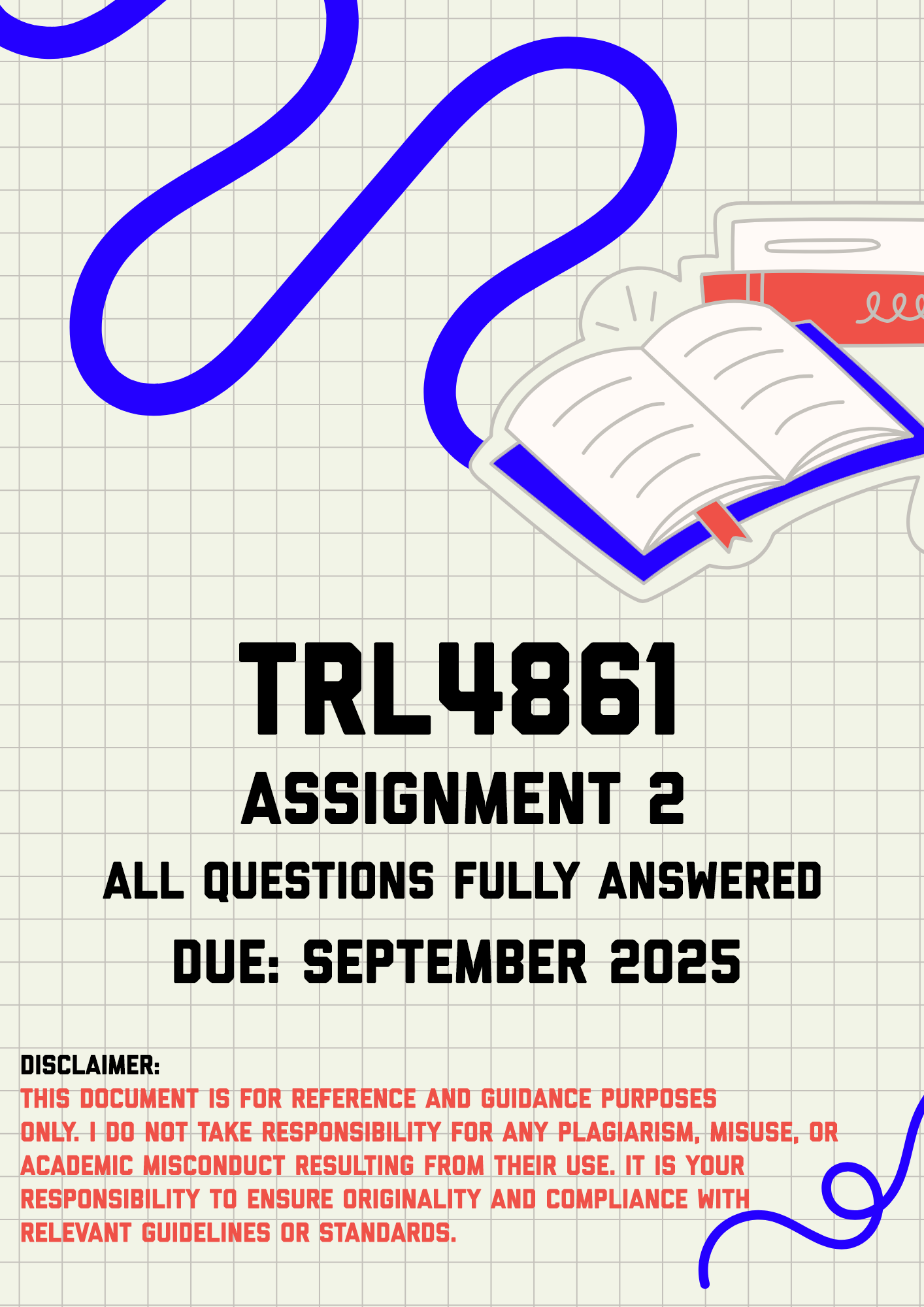
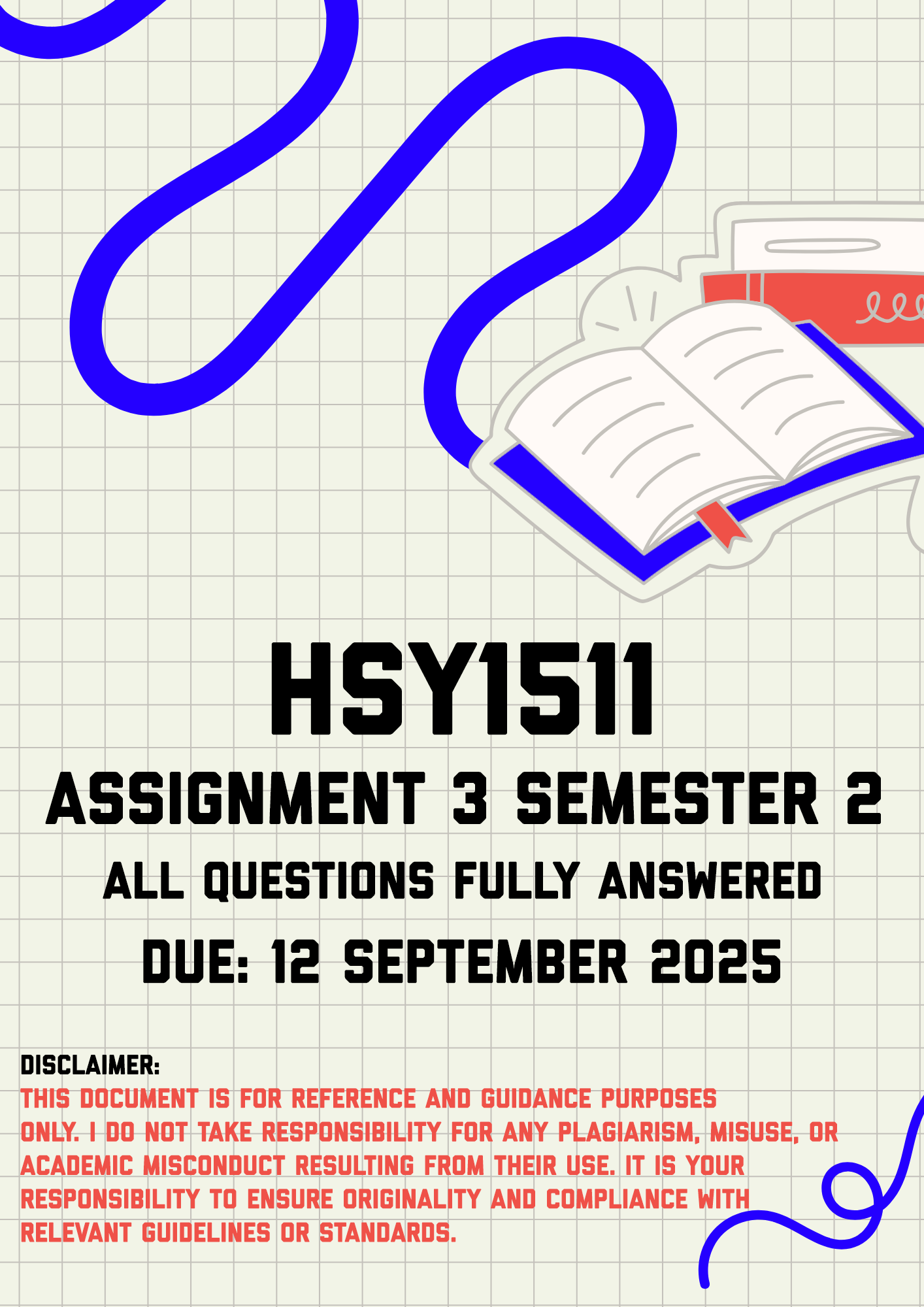
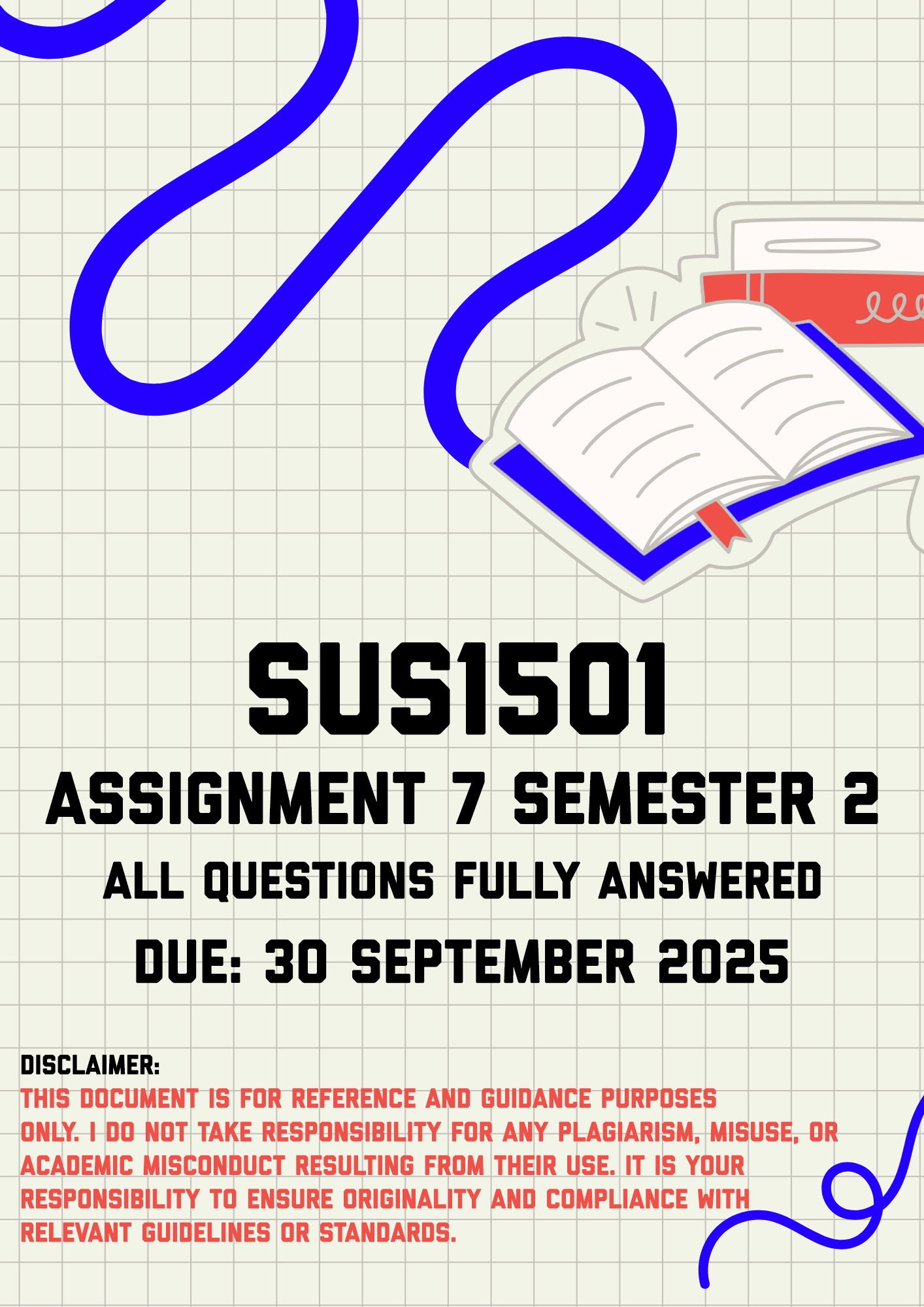
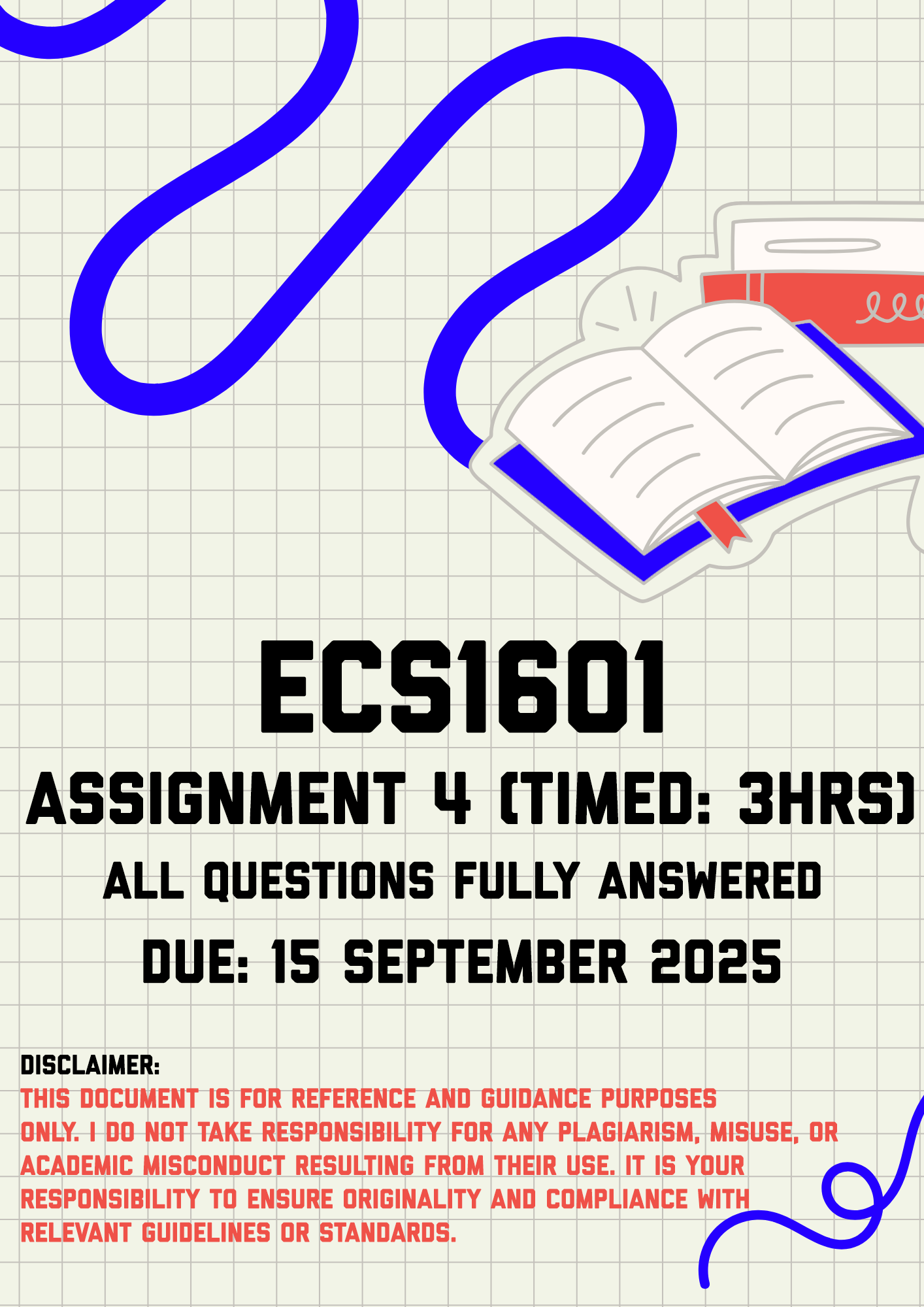

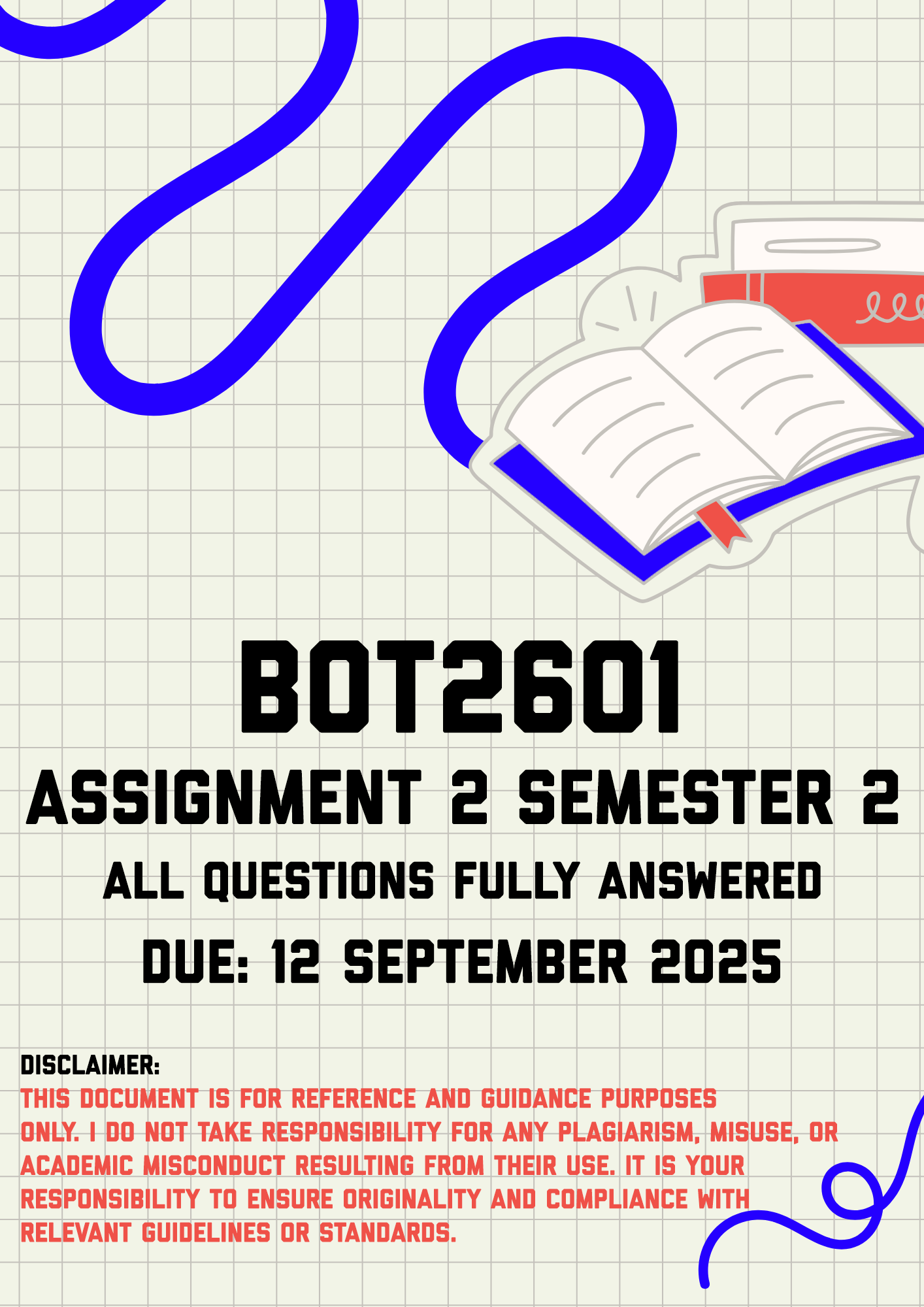
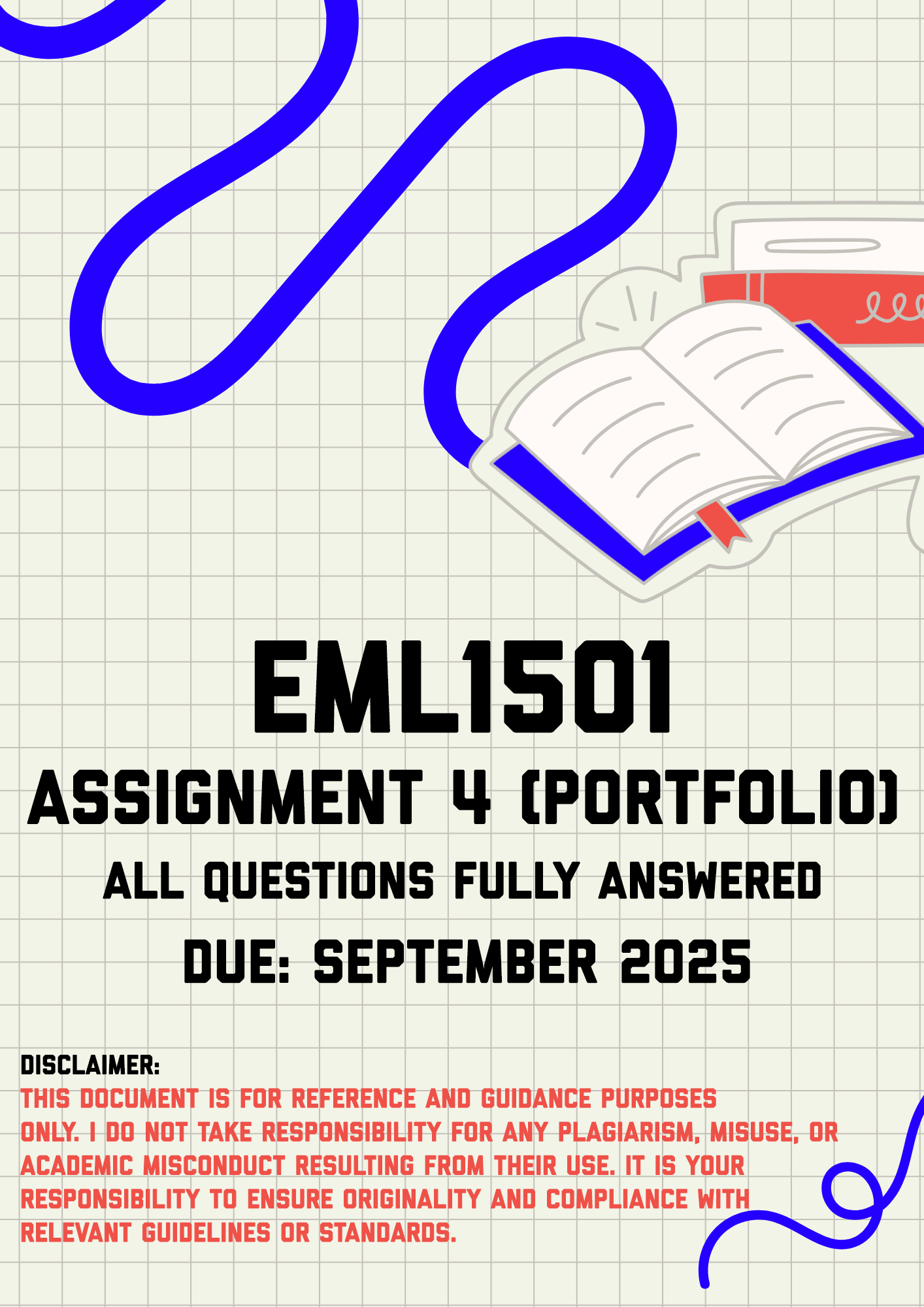
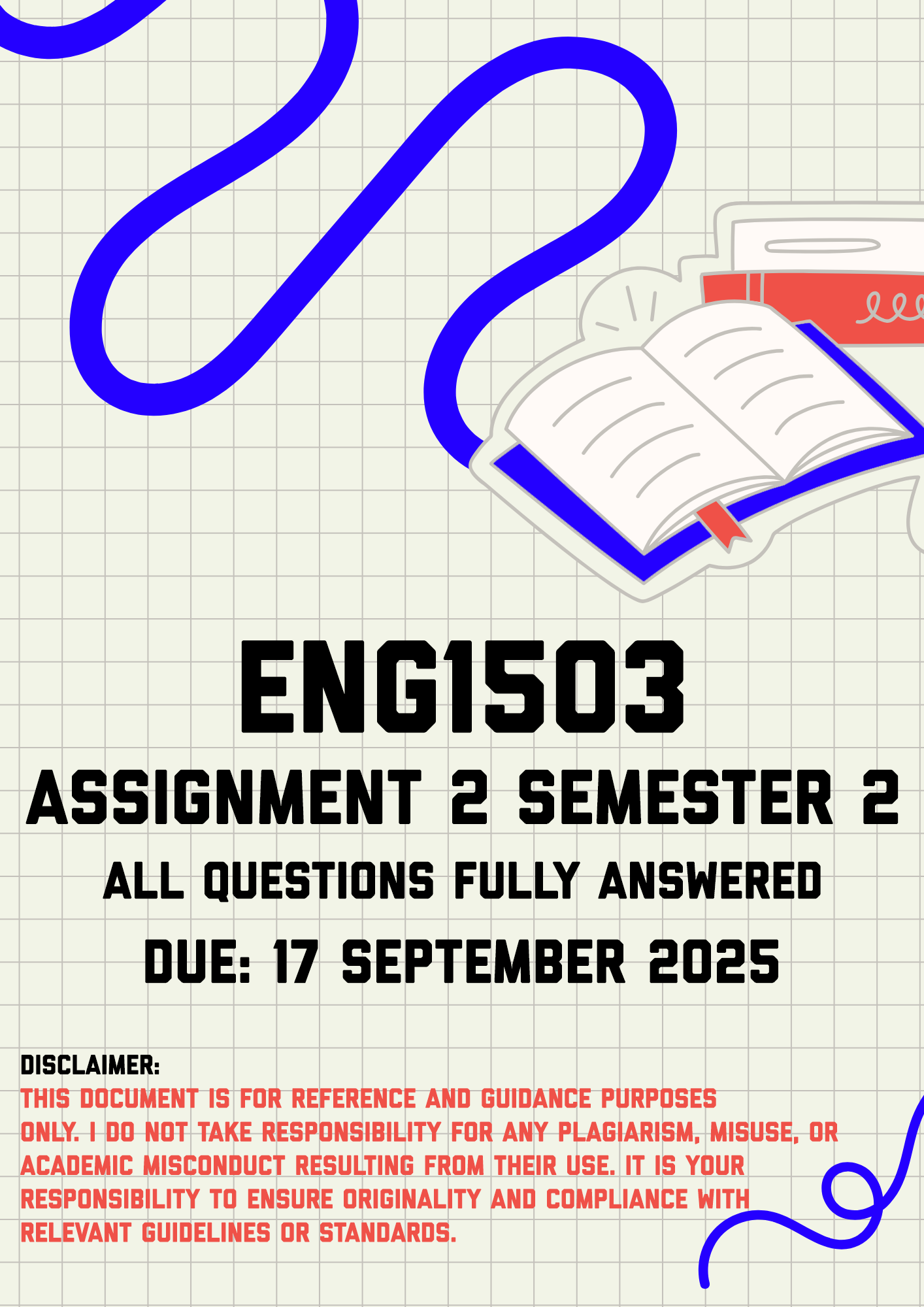
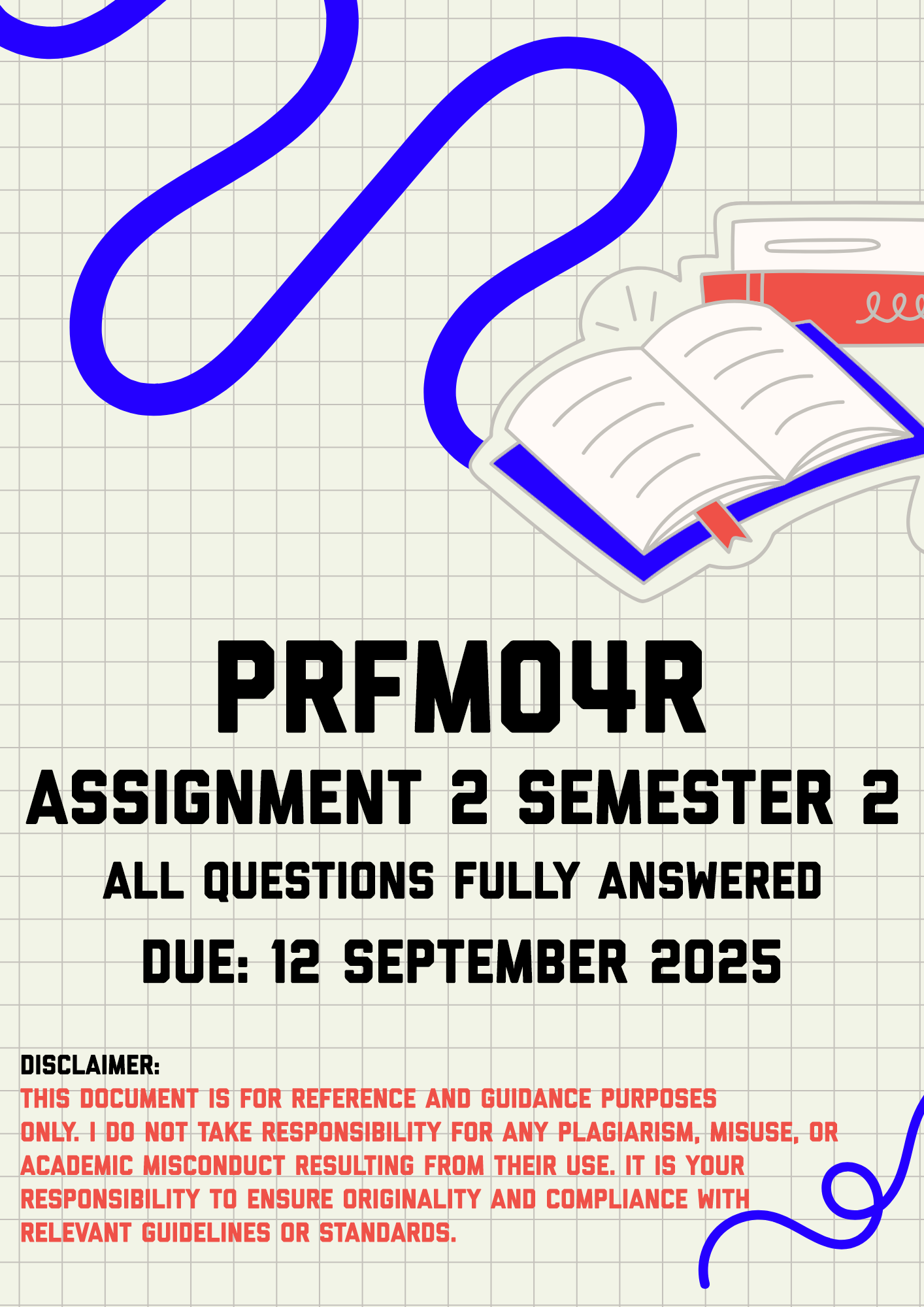
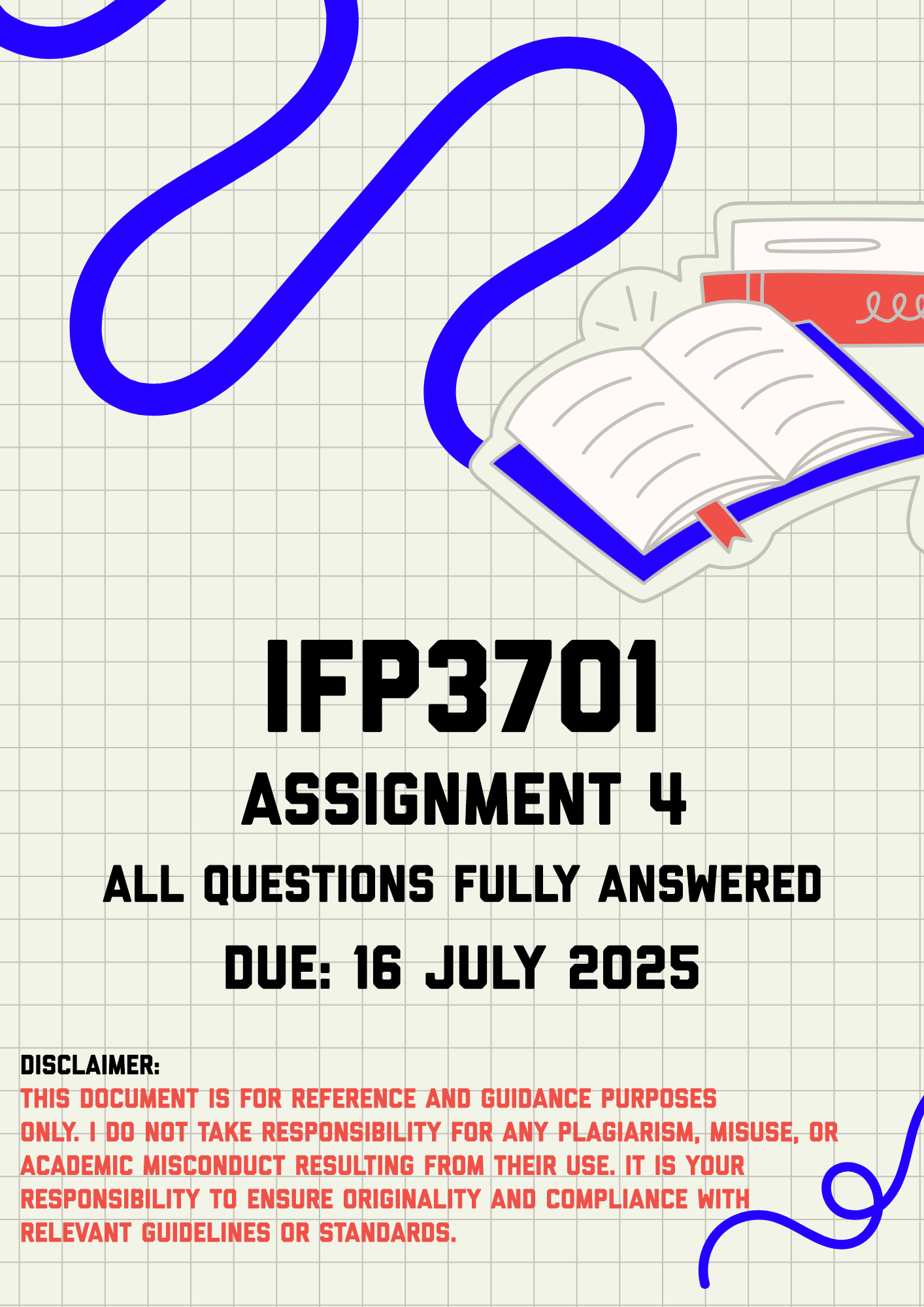

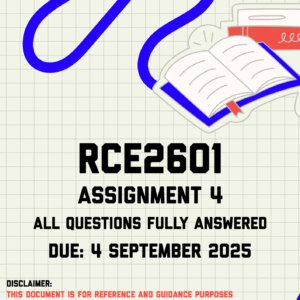


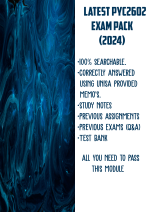

![LML4806 Assignment 01 Semester 01 2025 Answers [Due Date : March 2025]](https://studypass.co.za/wp-content/uploads/2025/01/Orange-and-Pink-Colorful-Playyful-Grainy-Gradient-Psychedelic-Graphic-Design-Portfolio-Cover-Document-300x300.jpg)

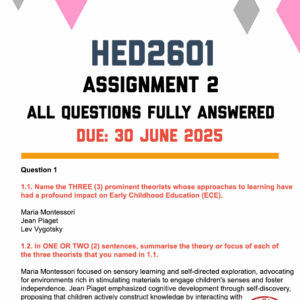

Reviews
There are no reviews yet.